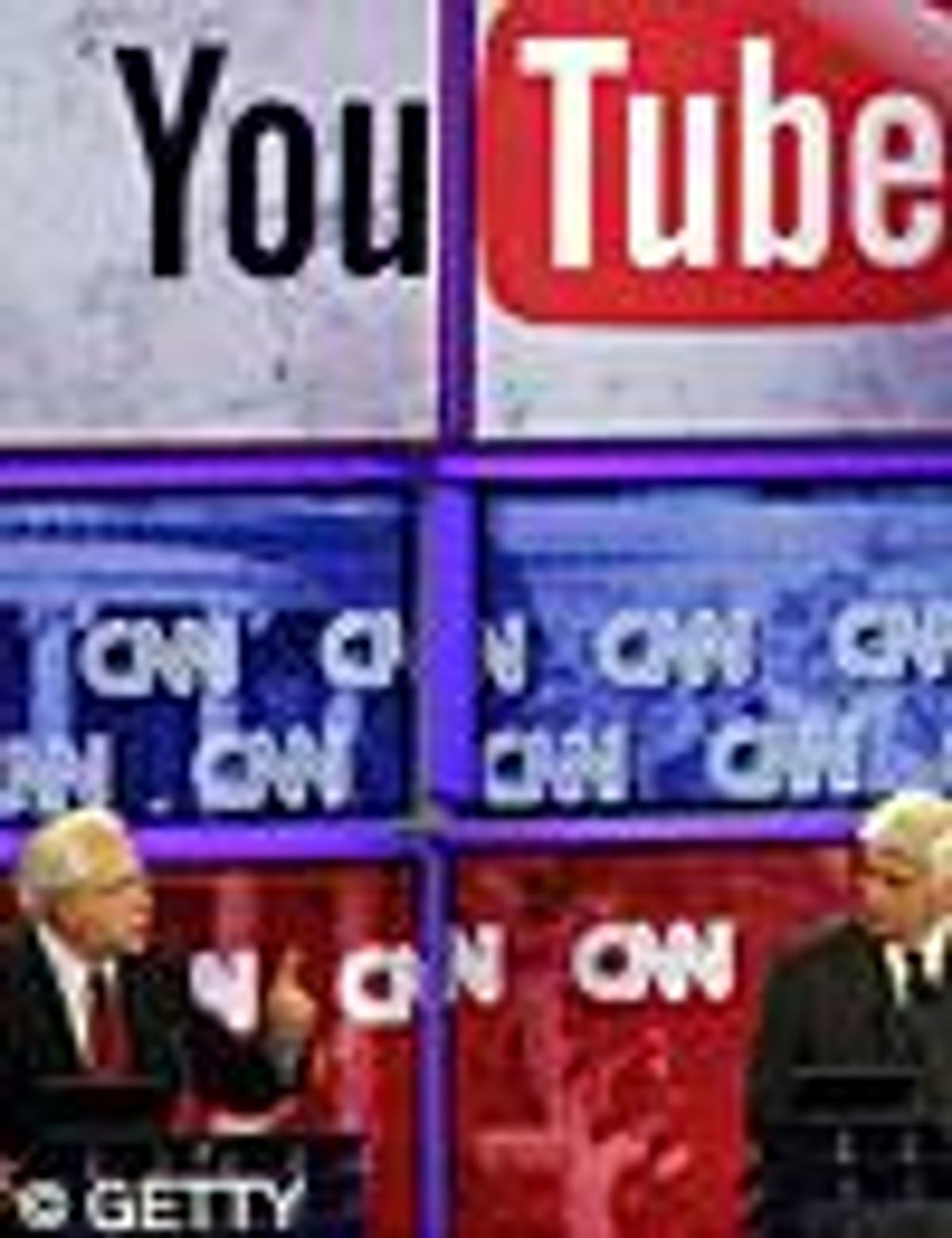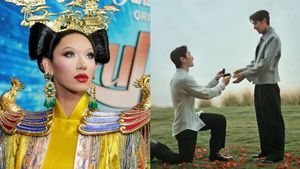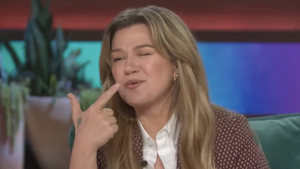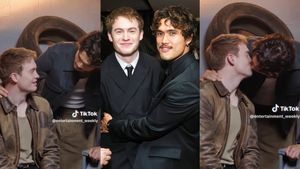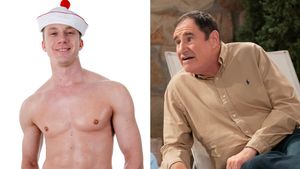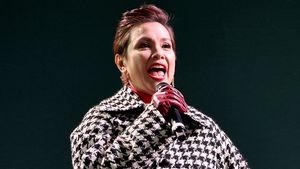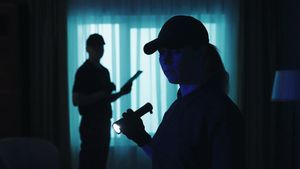Lesbians asking
about same-sex marriage. Two unrelated parents with sons
in Iraq asking about the war. And a snowman asking about
global warming?
Video questions
submitted to the hip Web site YouTube shook up the usual
campaign debate Monday night in Charleston, S.C. The
questions, most of them coming from young people, were
blunt and earnest, yet sometimes bizarre.
''He needs
help,'' Delaware senator Joe Biden said after watching a
video of a man holding an automatic weapon and asking
how the candidates would protect his ''baby.'' ''I
don't know if he's mentally qualified to own that
gun.''
The revelations
that the questions elicited ranged from the ridiculous to
the grave. John Edwards didn't like Sen. Hillary Rodham
Clinton's bright coral jacket. More seriously,
Illinois senator Barack Obama would be willing to meet
individually with the leaders of Iran, Syria, Venezuela,
Cuba, and North Korea during the first year of his
presidency, while Clinton would not.
''I don't want to
be used for propaganda purposes,'' she said. Her
campaign quickly posted video of her answer online, trying
to show she has a different understanding of foreign
policy than her chief rival.
The innovative
questions added an Internet age twist to the oldest forum
in politics--a debate.
''The greatest
innovation of this debate is that we're seeing candidates
respond to real voters instead of polished TV
personalities,'' said Michael Silberman of the online
consulting firm EchoDitto. ''It's a win for the
candidates who are at their best when addressing voters.
It's a win for democracy, since average Americans
outside of the early primary states now have the
opportunity to ask direct questions of candidates.''
Two video
submissions featured men singing about topics that usually
aren't the stuff of lyrics--taxes and the No Child
Left Behind education law. The first question began
with a voter named Zach asking, ''Whassup?'' Another
featured two men from Tennessee playing hillbillies
and asking if all the talk about Al Gore entering the race
hurt their feelings. ''I think the people of Tennessee
just had their feelings hurt,'' Biden responded.
Because the
questions were asked differently, candidates normally loath
to stray from talking points had to answer differently, said
Democratic consultant Dan Newman. ''Future debate
organizers will take note and look for unique gimmicks
to keep the countless debates interesting during this
marathon campaign,'' he said.
Democratic
strategist Kiki McLean said the format got the candidates to
speak ''in real language, not citing legislative bill
numbers.''
Yet sometimes
they had to be pressed to answer directly. Clinton was
asked three times whether she would put U.S. troops into the
Darfur region of Sudan before she answered no. After a
video of a pastor asking Edwards if it's acceptable to
use his religion to deny marriage rights to gay
couples, Edwards talked about his personal conflict over
the issue. The pastor was sitting in the audience and said
he didn't hear everything he wanted to hear. Edwards
responded flatly that it's not right to use religion
to deny anyone their rights and he won't do it.
The candidates
were asked whether they would take the presidency at
minimum wage. Most said yes. ''Well, we can afford to work
for the minimum wage because most folks on this stage
have a lot of money,'' Obama said. When Connecticut
senator Chris Dodd tried to protest that he wasn't in
the same league, Obama said, ''You're doing all right,
Chris.''
Questions about
health care came from brothers spoon-feeding dinner to a
father who has Alzheimer's, a woman sitting with her
diabetic mother, a man in a wheelchair, and a
36-year-old woman who pulled off her wig and declared
her hope to be a breast cancer survivor.
''We should be
outraged by these stories,'' Edwards said, his voice
rising as he pounded his podium.
Their struggles
fit in perfectly with Edwards's message of the
night--there are too many important issues to focus on
the $400 haircuts that he got, discussion of which is
dogging his campaign. Candidates were asked to produce
their own YouTube-style videos, and Edwards set his to
the theme from the 1968 musical Hair. It includes
serious images--several from Iraq--and
ends with the text ''What really matters? You
choose.''
Dodd's video also
was about his hair. ''The guy with the white hair for
the White House,'' it said. Clinton's video ad ended with
the kicker, ''Sometimes the best man for a job is a
woman.''
The candidates
gathered at the Citadel military college in South
Carolina, site of one of the earliest
primaries--January 29. Many questions focused on
the Iraq war.
Asked if
Democrats are playing politics with the war, Rep. Dennis
Kucinich of Ohio said yes. ''The Democrats have failed the
people,'' he said.
Former Alaska
senator Mike Gravel said U.S. soldiers are dying in vain.
No other candidate would go that far.
Obama took the
opportunity to take a slap at his rivals who voted to give
Bush authority to invade Iraq. ''The time to ask how we're
going to get out of Iraq was before we got in,'' he
said, without naming Clinton, Edwards, and others.
Gov. Bill
Richardson of New Mexico said he's the only candidate
pledging to remove troops within six months. ''Our
troops have become targets,'' he said. Biden of
Delaware said Richardson's goal was unrealistic.
Sensing her
position was under attack, Clinton bristled as she argued
that U.S. troops must be removed from Iraq ''safely and
orderly and carefully.''
The Democratic
gathering marked a turning point in political
communications. CNN, a landmark all-news cable network when
founded 27 years ago, is now part of a media
establishment coming to terms with upstarts like the
2 1/2-year-old online video community. CNN and YouTube
planned to host a similar event for the nine Republican
candidates on September 17.
The debate aside,
YouTube has already left its mark on politics.
Republican George Allen lost his Senate seat and a likely
spot in the 2008 presidential race after a YouTube
video caught him referring to a man of South Asian
descent as ''macaca''--an ethnic slur in some
countries.
In the
presidential campaign, buzz-worthy video clips have included
Bill and Hillary Clinton's spoof of the finale of
The Sopranos, Edwards combing his hair to
the tune ''I Feel Pretty,'' and a buxom model
professing her crush on Obama.
Most of the
candidates use social networking tools popularized by
YouTube and MySpace.com to draw voters to their sites
and create a sense of community. Some of the
Democratic candidates planned to answers supporters'
questions on their sites after the debate. (Nedra Pickler,
AP)
